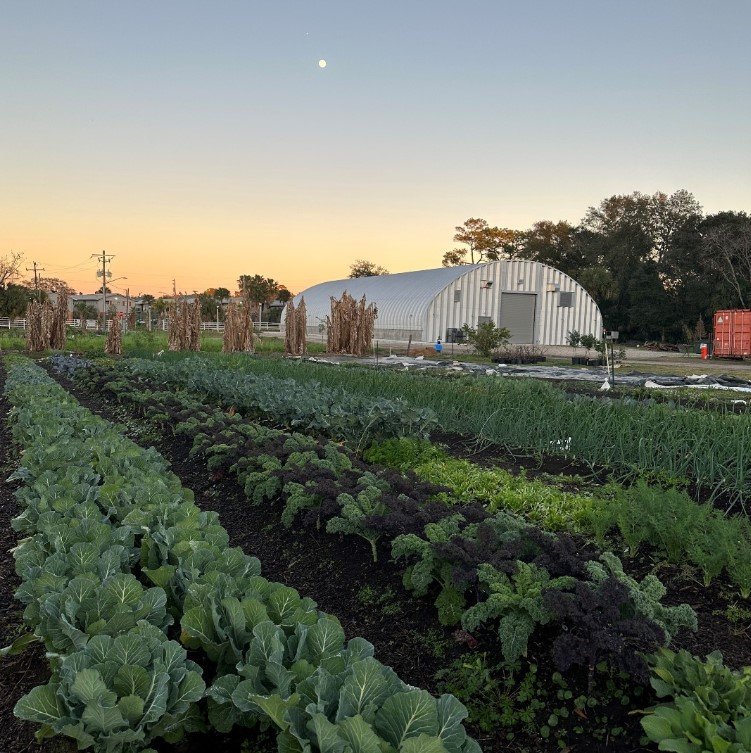ABOUT US
Our mission is to foster a healthy and resilient community by increasing access to local and healthy foods, providing educational and training programs, and engaging the community in urban agriculture and environmental stewardship.
TODAY
Eartha’s Farm & Market is an initiative of the Clara White Mission. The Clara White Mission (CWM) is a 501(c)(3) nonprofit organization that has served the Jacksonville (FL) community since 1904 with programs directed toward low-income individuals and military veterans in the areas of housing, job training, feeding, and advocacy.The Clara White Mission was founded by Eartha M.M. White (1876-1974). Ms. White was an extraordinary humanitarian, entrepreneur, and social activist, who gracefully and strategically navigated through a world where African American women (barely one generation removed from enslavement in the Deep South), weren’t expected to venture…and certainly not expected to succeed. Eartha, with her mother, Clara English White, followed her passion for service and her savvy for business to plant seeds of community care and heal the scars left by enslavement, racism, and segregation. Her grass roots efforts grew into organizations and institutions still meeting human needs today– including the Clara White Mission and Eartha’s Farm & Market. Eartha’s Farm & Market sits on land once lived on and stewarded by Ms. White. Her historical home and museum are still standing today”
In 2012 the agency started EFAM, a 10.5-acre urban farm located in Northwest Jacksonville. The purpose of the farm is to increase the production of healthy fruits and vegetables, improve food access in this food desert community, and provide training and educational programming to the local residents. EFAM is located in the Moncrief Springs neighborhood of Jacksonville, a historically black community that was once a bustling neighborhood with recreational and business enterprises and economic opportunities that served the local residents. In the 1940’s and 50’s, the City of Jacksonville utilized the area to dump incinerator ash on over 50 acres and across several sites on the Northside, resulting in on-going serious health issues for the community. Over the years, other ill-advised city-wide projects, including capping off a natural spring in this area, contributed to the decline of the neighborhood. The area was cleaned up several years ago as part of the Comprehensive Environmental Response, Compensation, and Liability Act (CERCLA) Superfund as a way to mitigate the adverse effects associated with those issues, but the recovery for the residents and improved vitality of the area was slow and ultimately minimal.
Urban Farming practices: EFAM utilizes organic, regenerative and sustainable farming practices to grow a range of annual vegetables, herbs, and fruit. EFAM was a site for the Natural Resources Conservation Service Conversation and Innovation Grant (NRCS CIG) project from 2019-2021 that focused on improving soil health, nutrient density and yields through biological inputs, integrated pest management, intercropping, and composting. EFAM still uses these practices today.
Farm Features: EFAM has a bee apiary, compost facilities, community garden, perennial fruits, annual vegetables plots, a green house, quonset hut, perennial herb garden and community beds for rent, and an on-site farmers market.
Engagement: There are lots of ways to get involved at EFAM. You can volunteer, rent a bed, take a workshop, shop the market, attend our signature Farm to Fork Dinner and so much more.
EFAM is a thriving 10.5 acre urban farm & market dedicated to increasing food access, improving health outcomes and engaging the local community in urban agriculture. Our primary services areas include 32209,32208, and 32206.




